As I watched the lone defence forces captain Darren Reilly read the Irish proclamation outside the GPO on a deserted O’Connell Street on Easter Sunday 2020, I reflected on our hard-won freedom. The President Michael D Higgins laid a wreath at Áras an Uachtaráin and a minute’s silence was observed for those who died in the Rising. Coronavirus prevented any public involvement.

Denise Farren at the Kerry Museum with the Irish Proclamation.
On Good Friday, An Taoiseach Leo Varadkar extended the COVID-19 restrictions and An Garda Síochána were granted additional powers above the “policing by consent” system operated in our country since their formation. I was asked by a Guard where I was going as I drove home from the shop on Saturday. A polite conversation but a reminder to go home. Our freedom may be curtailed, but our response to this pandemic has been positive, and our history demonstrates we are resilient.
The weekend before the full impact of the coronavirus came to bear on us all, my friend Denise and I travelled to Tralee to visit the Tom Crean exhibition in the Kerry Museum. While there, another exhibition caught our eye. That of “Casement in Kerry: a revolutionary journey”. This exhibit details the life of the humanitarian turned revolutionary, Roger Casement. Casement’s landing on Banna Beach in Kerry on Good Friday 1916 was a pivotal event in the lead up to the Rising that broke out in Dublin a few days later. Captured and hanged for treason for the role he played in achieving our freedom, many notable literary legends, pleaded for clemency, including WB Yeats. I felt it almost serendipitous when I thought of the closing lines of his poem, Easter 1916: “Are changed, changed utterly: A terrible beauty is born.”
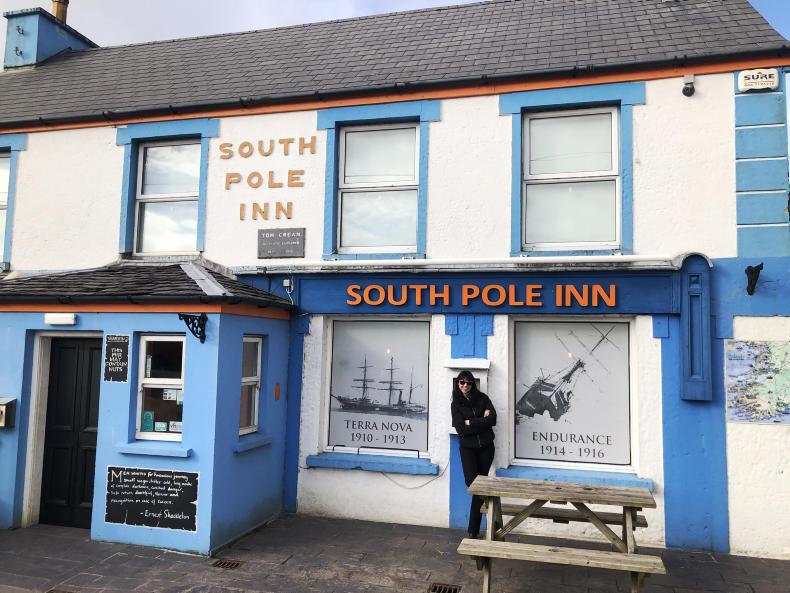
Amii McKeever at the South Pole Inn, the pub in Annascaul owned by antarctic explorer Tom Crean.
However, our main reason for this trip was for Tom Crean. I have been reading Michael Smith’s book An Unsung Hero which chronicles the life of the farmer’s son from Kerry who traversed the southern continent of Antarctica with Sir Robert Scott and Sir Earnest Shackleton. He survived them both, returning to live out his life in his pub in Annascaul. We also visited the pub on our sojourn to Kerry and I literally “bought the t-shirt”.
On Easter Sunday night, I reached the point in the story where Crean and his compatriots on the expedition reached Elephant Island in their life boats. Their ship, the Endurance, had become trapped in the ice had sank and the crew survived by camping on sea ice until that disintegrated and they used life boats to escape the ice. While Casement was being taken to prison; on the same day as the Easter Rising began, Easter Monday 24 April 1916, Crean and the exploration party launched into the sea to make a bid for the island of South Georgia and their freedom.
It must have been a sense of adventure and a lust to travel that drove Crean to make those perilous voyages but it was resilience and mental strength that got him home alive.
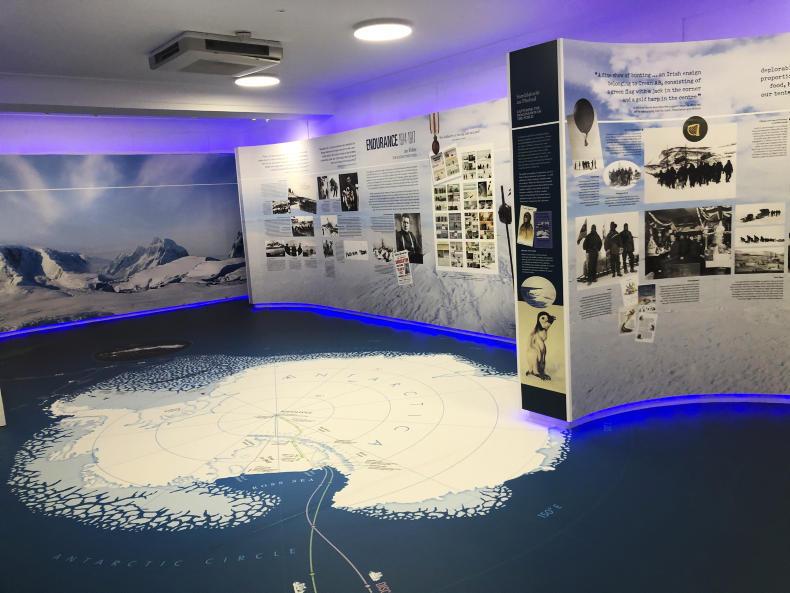
Tom Crean exhibition at the Kerry Museum, Tralee, Co Kerry.
A quote from An Unsung Hero demonstrates this: “But at moments of great stress, it was his capacity to remain calm, think clearly and obey orders that served him.” This description is exactly what we need to do now. With another three weeks of enforced isolation ahead, we need to foster a mental resilience like the Kerryman’s to get us back on safe ground. As Katherine says in her piece this week, “We can and must keep going”.
Read more
Human contact is sacrosanct to who we are
Adjusting to the impact of COVID-19 on daily living
As I watched the lone defence forces captain Darren Reilly read the Irish proclamation outside the GPO on a deserted O’Connell Street on Easter Sunday 2020, I reflected on our hard-won freedom. The President Michael D Higgins laid a wreath at Áras an Uachtaráin and a minute’s silence was observed for those who died in the Rising. Coronavirus prevented any public involvement.

Denise Farren at the Kerry Museum with the Irish Proclamation.
On Good Friday, An Taoiseach Leo Varadkar extended the COVID-19 restrictions and An Garda Síochána were granted additional powers above the “policing by consent” system operated in our country since their formation. I was asked by a Guard where I was going as I drove home from the shop on Saturday. A polite conversation but a reminder to go home. Our freedom may be curtailed, but our response to this pandemic has been positive, and our history demonstrates we are resilient.
The weekend before the full impact of the coronavirus came to bear on us all, my friend Denise and I travelled to Tralee to visit the Tom Crean exhibition in the Kerry Museum. While there, another exhibition caught our eye. That of “Casement in Kerry: a revolutionary journey”. This exhibit details the life of the humanitarian turned revolutionary, Roger Casement. Casement’s landing on Banna Beach in Kerry on Good Friday 1916 was a pivotal event in the lead up to the Rising that broke out in Dublin a few days later. Captured and hanged for treason for the role he played in achieving our freedom, many notable literary legends, pleaded for clemency, including WB Yeats. I felt it almost serendipitous when I thought of the closing lines of his poem, Easter 1916: “Are changed, changed utterly: A terrible beauty is born.”

Amii McKeever at the South Pole Inn, the pub in Annascaul owned by antarctic explorer Tom Crean.
However, our main reason for this trip was for Tom Crean. I have been reading Michael Smith’s book An Unsung Hero which chronicles the life of the farmer’s son from Kerry who traversed the southern continent of Antarctica with Sir Robert Scott and Sir Earnest Shackleton. He survived them both, returning to live out his life in his pub in Annascaul. We also visited the pub on our sojourn to Kerry and I literally “bought the t-shirt”.
On Easter Sunday night, I reached the point in the story where Crean and his compatriots on the expedition reached Elephant Island in their life boats. Their ship, the Endurance, had become trapped in the ice had sank and the crew survived by camping on sea ice until that disintegrated and they used life boats to escape the ice. While Casement was being taken to prison; on the same day as the Easter Rising began, Easter Monday 24 April 1916, Crean and the exploration party launched into the sea to make a bid for the island of South Georgia and their freedom.
It must have been a sense of adventure and a lust to travel that drove Crean to make those perilous voyages but it was resilience and mental strength that got him home alive.

Tom Crean exhibition at the Kerry Museum, Tralee, Co Kerry.
A quote from An Unsung Hero demonstrates this: “But at moments of great stress, it was his capacity to remain calm, think clearly and obey orders that served him.” This description is exactly what we need to do now. With another three weeks of enforced isolation ahead, we need to foster a mental resilience like the Kerryman’s to get us back on safe ground. As Katherine says in her piece this week, “We can and must keep going”.
Read more
Human contact is sacrosanct to who we are
Adjusting to the impact of COVID-19 on daily living






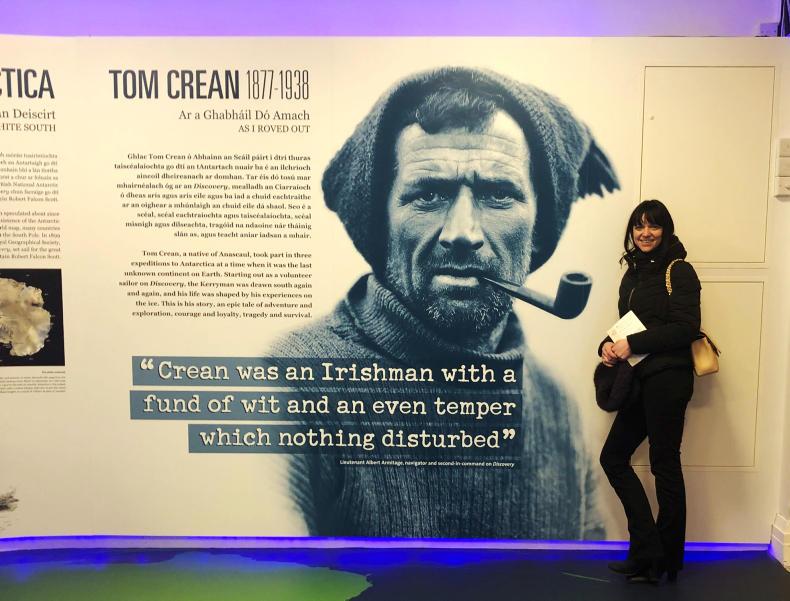

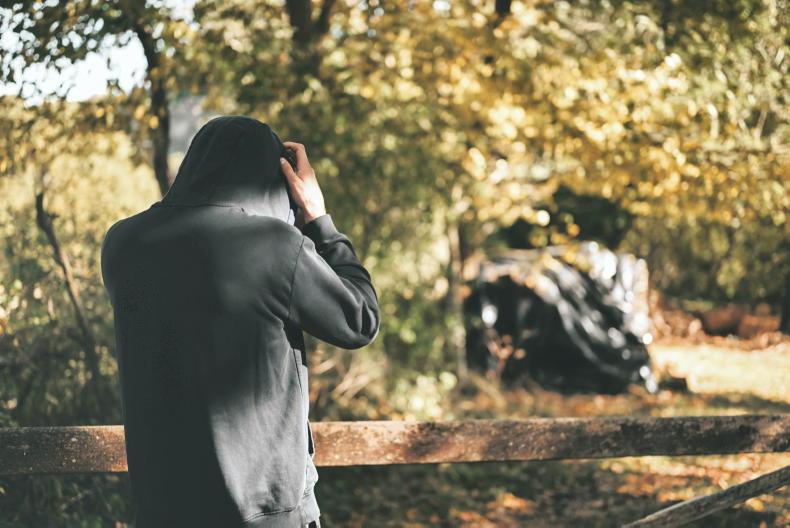
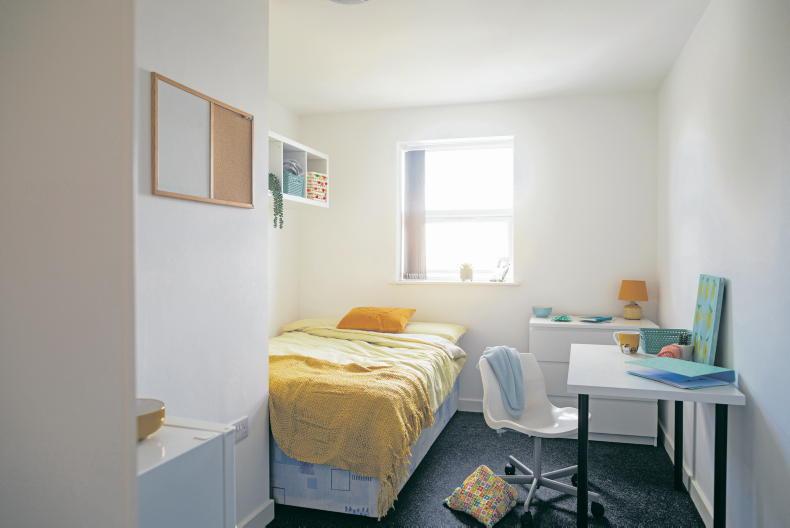
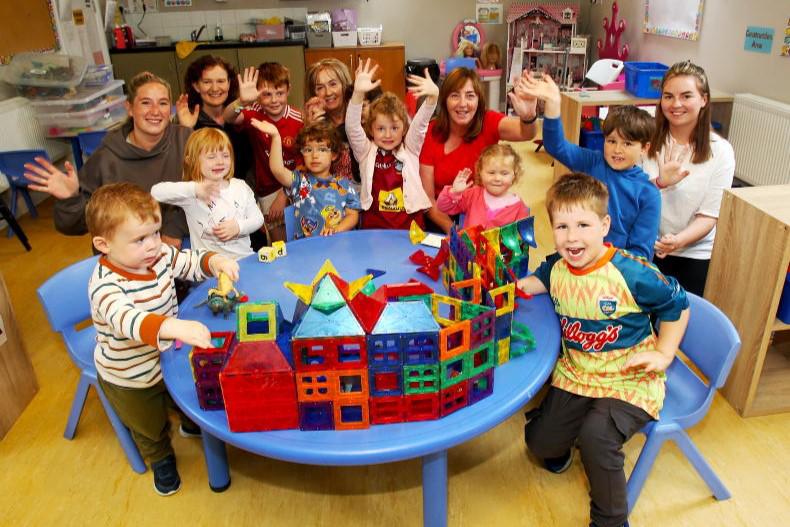

SHARING OPTIONS